Asia-Pacific Capital Projects & Infrastructure Summit spotlights sustainability
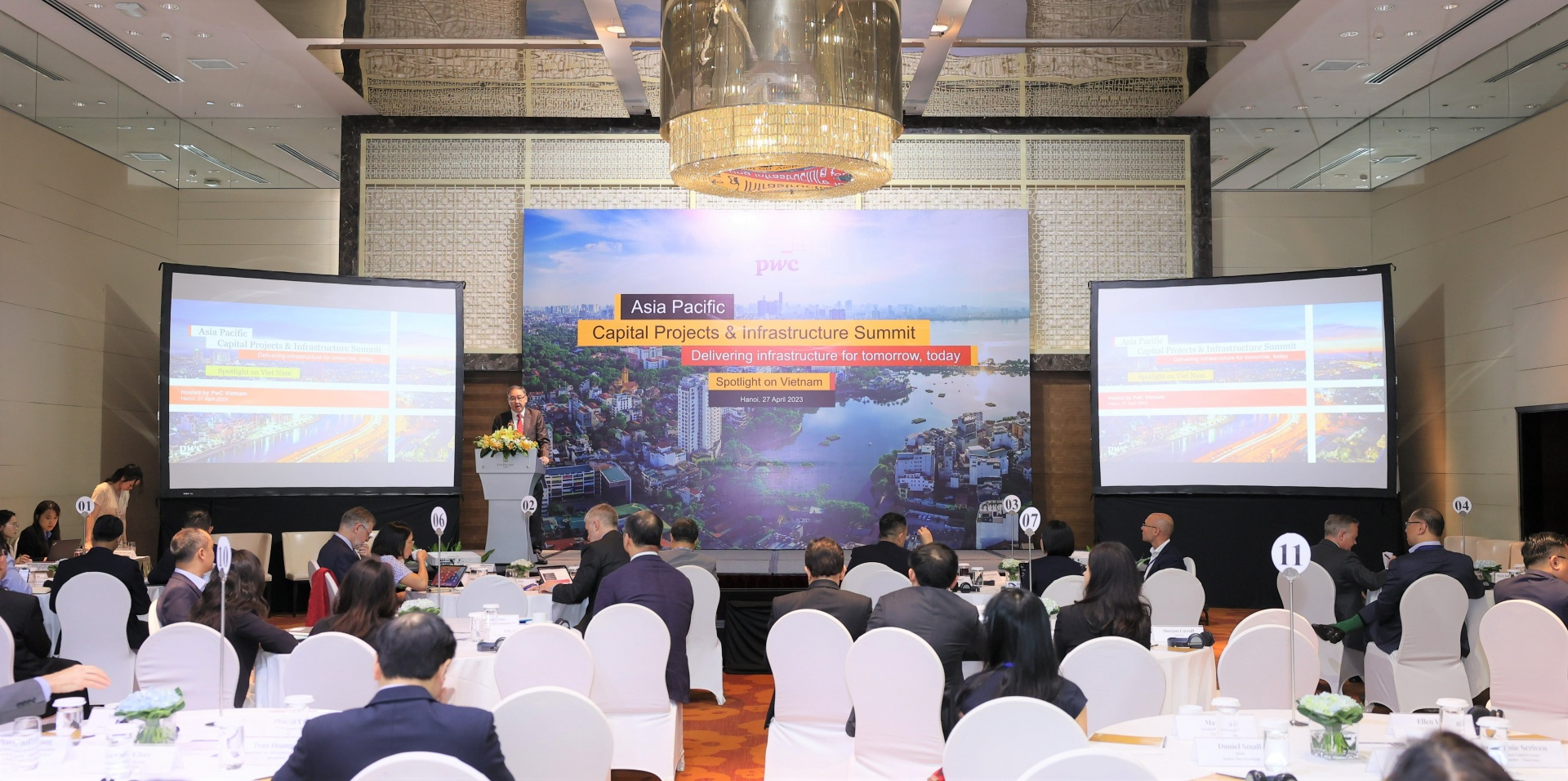 |
| PwC’s Asia Pacific Capital Projects and Infrastructure Summit took place on April 27 in Hanoi |
A wider look at Asia-Pacific
PwC's latest research on green infrastructure shows that Asia-Pacific's middle-to-low-income nations, including India, Indonesia, the Philippines, Thailand, and Vietnam, are where 60 per cent of new infrastructure investment is needed most in terms of the green transition.
However, these countries lack the capacity to fund the necessary investment, which highlights the need for foreign direct investment support.
Meanwhile, developed nations are failing to meet a long-standing pledge to deliver $100 billion to help poorer countries cope with climate change by 2020, as reported by the Organisation for Economic Co-operation and Development.
On a positive note, investor interest in sustainable investments is rising, with environment, social and governance considerations becoming increasingly important aspects of investment analysis and decision-making, as per PwC's Global Investor Survey.
Furthermore, partnerships backed by government or international finance are emerging, providing financial institutions with assurances to align their investment portfolios towards meeting the goal of limiting global warming to 1.5 degrees as agreed during the Intergovernmental Panel on Climate Change in late 2018.
The commitments made at COP26, including the net-zero target by 2050, have also significantly boosted investor interest in sustainable infrastructure, with a surge in investments in renewable energy, green buildings, and other sustainable infrastructure projects.
To tap into this finance pool, governments must prioritise green elements and promote infrastructure projects that support a fair and inclusive transition to low-emission economies while accelerating climate-resilient growth. It is also crucial to develop capacity and upskilling in relation to renewable energy.
The involvement of the private sector is important in achieving sustainable infrastructure, especially in areas with limited public resources. With their financial resources, technical expertise, and efficiency, private sector entities can help bridge the infrastructure gap and support the transition towards sustainable development.
The Asia-Pacific Capital Projects and Infrastructure Summit served as a platform for global and regional leaders, as well as key stakeholders in Vietnam’s infrastructure industry, to discuss effective delivery and innovative policy solutions for sustainable infrastructure.
The Summit showcased the latest innovations and best practices, considering smart technologies, the energy transition, and social inclusion.
Adrian Box, partner at PwC Australia and Asia-Pacific Infrastructure leader stated, "At PwC, we recognise the significant challenges facing the delivery of sustainable infrastructure in the Asia-Pacific region. Our commitment is to bring together the private and public sectors to collaborate and find effective solutions to these obstacles. By working together, we can create innovative policy solutions and ensure the successful delivery of sustainable infrastructure projects that benefit communities and support economic growth."
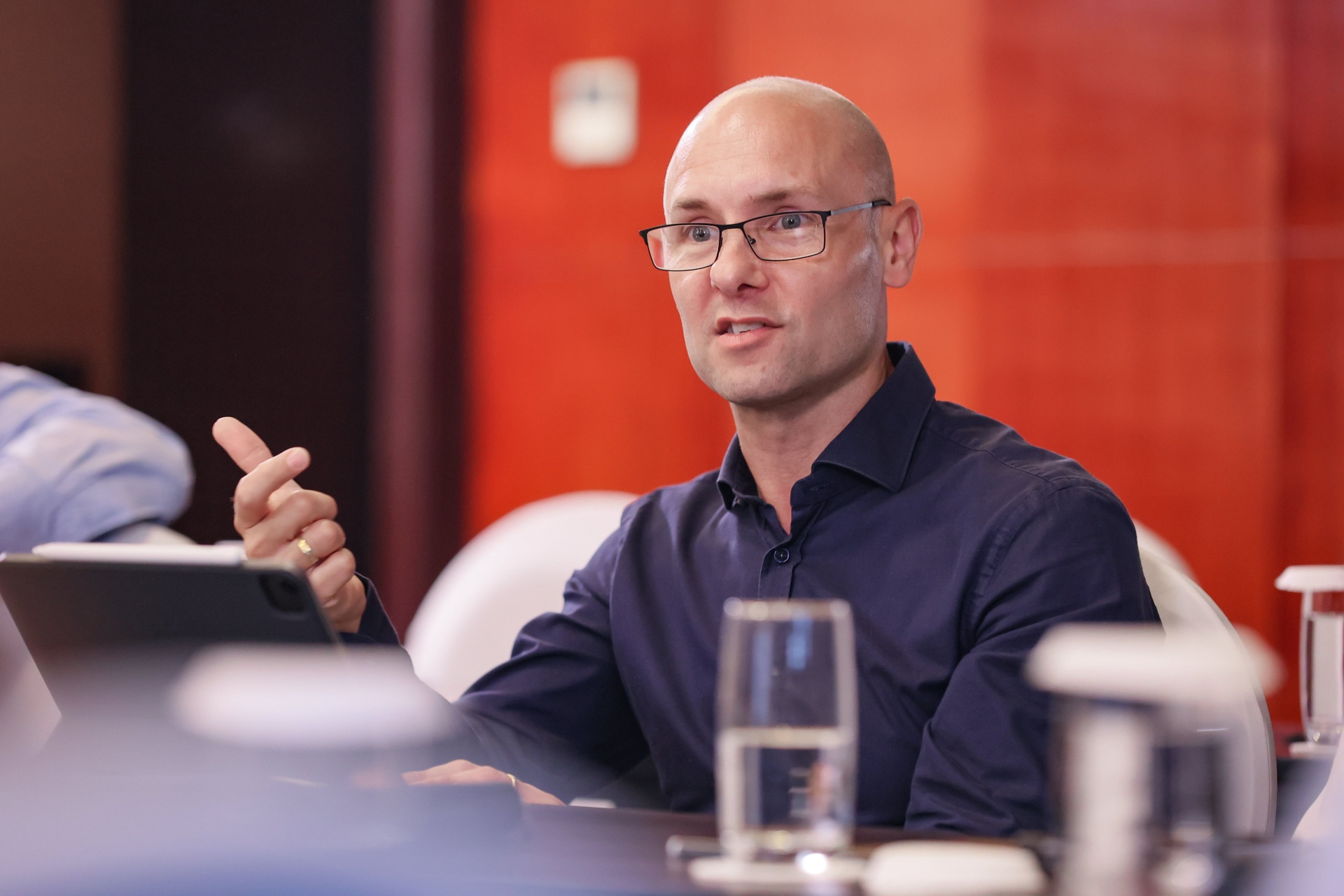 |
| Adrian Box emphasised PwC’s commitment to its sustainable infrastructure consulting service |
The high pace in Vietnam
Vietnam is the leading country in Asia in terms of infrastructure investment, currently spending 5.7 per cent of its GDP in this area. The country is undergoing a major transition towards becoming a high-income economy, and infrastructure development plays a key role in achieving this target.
The nation is investing heavily in infrastructure to support economic growth, improve the lives of its citizens, support the energy transition, and increase its resilience to climate change and natural disasters.
Dang Huy Dong, president of Vietnam’s Planning and Development Institute and former Deputy Minister of Planning and Investment commented, “Vietnam's National Master Plan for the 2021-2030 period with a vision to 2050 emphasises the need for an efficient and sustainable spatial organisation model for national development, supported by modern and interconnected infrastructure. The government has implemented several policies and initiatives to support sustainable infrastructure development, such as investing in renewable energy sources, encouraging the adoption of green building practices, and promoting e-mobility. We are delighted to see that this summit has brought together collaborative efforts from the public and private sectors to achieve the shared goal of sustainable infrastructure development.”
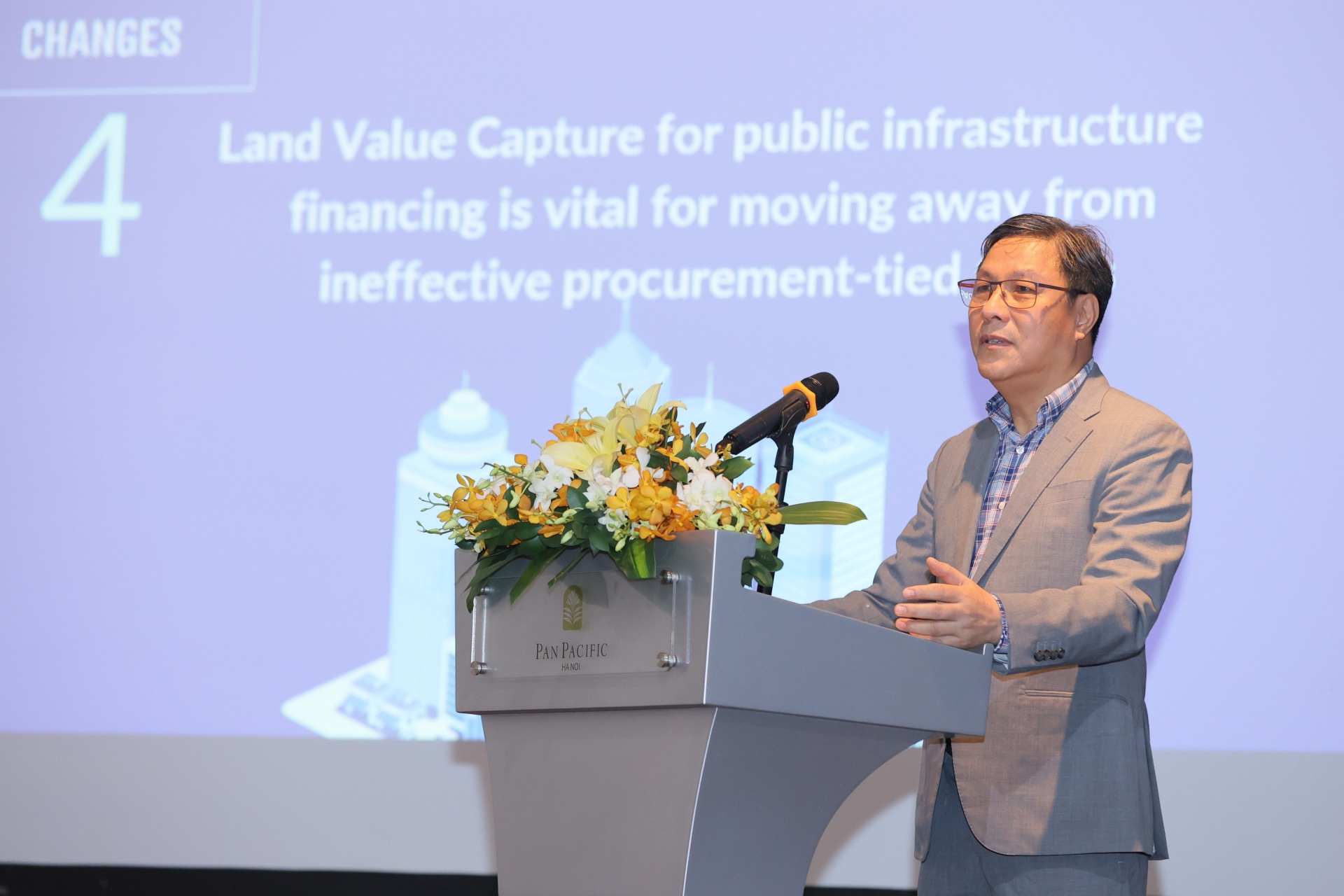 |
| Former Deputy Minister of the Ministry of Planning and Investment Dang Huy Dong speaking at the summit |
The summit also discussed the hurdles facing investors and public agencies in Vietnam, including the lack of clear and accurate visibility of the demands for infrastructure, poor coordination across multiple actors during the project life cycle, limited public funding capability, the complex legal and institutional landscape, and capital and time sensitivity.
Tackling these issues requires long-term planning, clear project pipelines, and the integration of local strategic and regulatory frameworks with national policies to attract private investors and developers.
Sub-national governments may lack the capacity, experience, and financial resources for high-quality infrastructure project preparation, hence assistance from national governments and international institutions is needed.
Allocating project risks between private and public sectors is also important, with examples including the government absorbing demand risk for new toll roads in underdeveloped areas to make such projects more viable for private investment.
Edward Clayton, partner and Capital Projects and Infrastructure leader at PwC Vietnam said, "Developing the infrastructure required for sustainable growth in Vietnam is a complex challenge, but one that presents significant opportunities for stakeholders and investors. We believe that by prioritising green, sustainable, and inclusive infrastructure projects, we can help accelerate the country's transition to a high-income, low-emission economy and contribute to creating a sustainable future for the people of Vietnam."
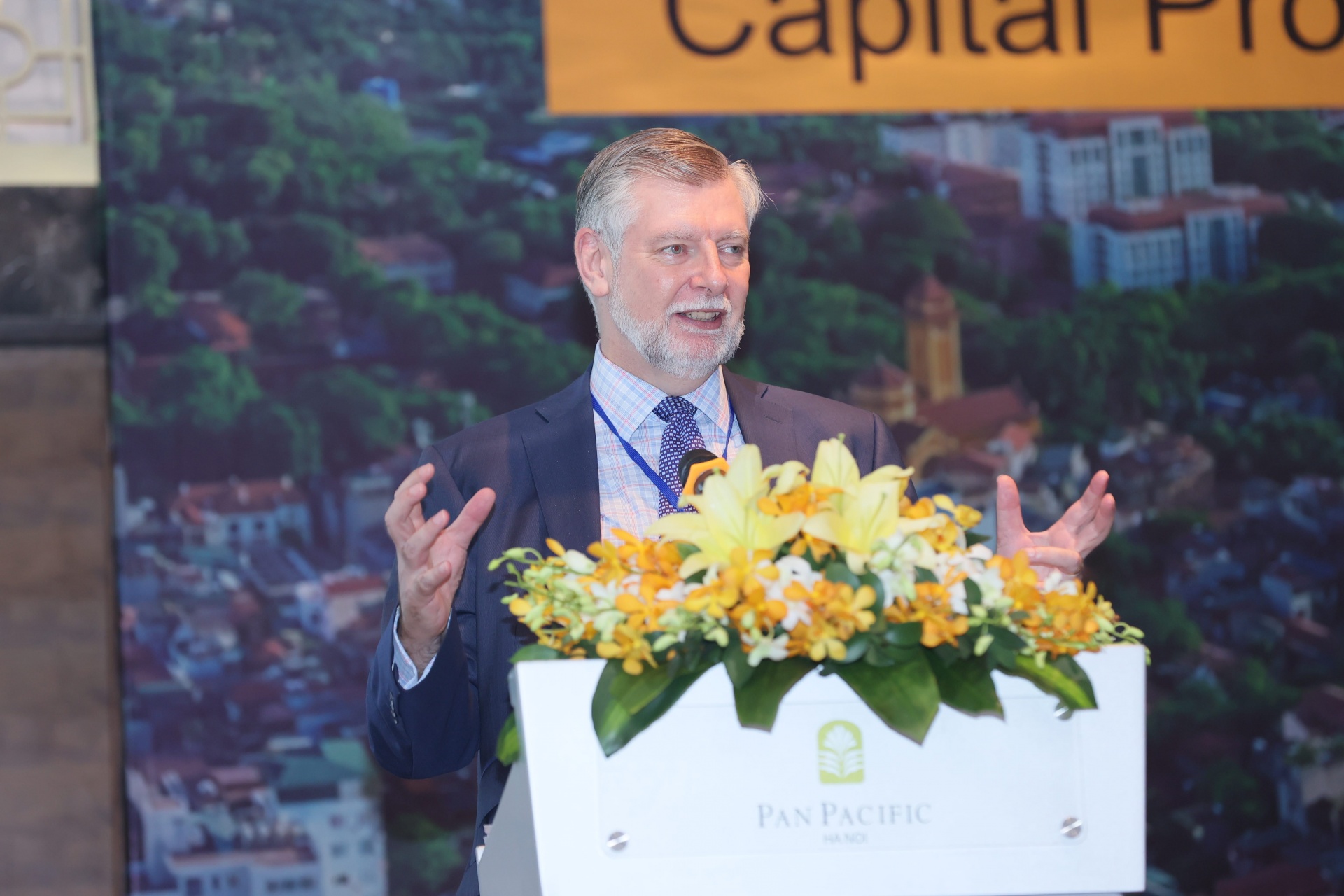 |
| Edward Clayton discussing the priorities for green, sustainable, and inclusive infrastructure projects |
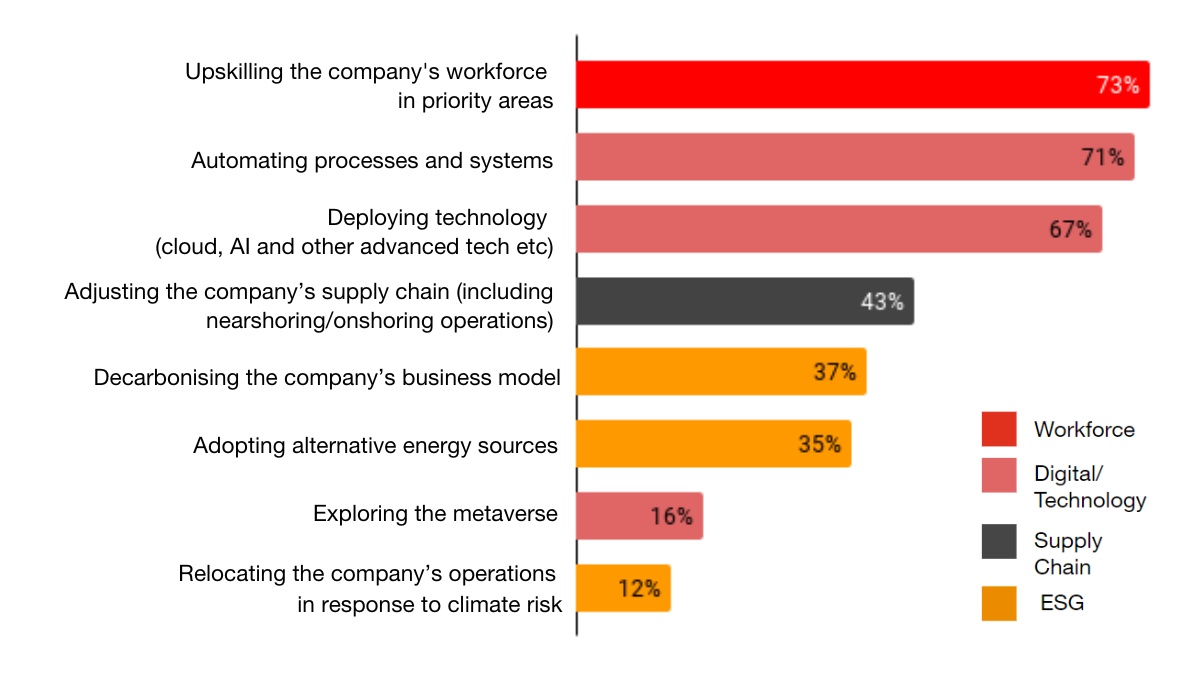 | PwC report reflects CEO's latest sentiments PwC Vietnam has just released its 26th Annual Global CEO Survey on What matters to CEOs in Vietnam based on PwC’s 26th Annual Global CEO Survey – Asia-Pacific: Leading in the New Reality, which reveals striking data points that bring to life the challenges facing 1,634 CEOs in the region and their implications in Vietnam. |
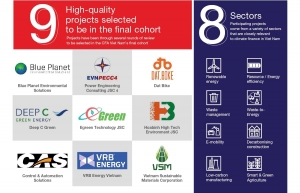 | Innovative low-carbon projects join UK's climate finance scheme Nine low-carbon Vietnamese initiatives, representing such diverse sectors such as renewable energy, resource efficiency, agriculture, decarbonising construction, and waste management have been chosen to take part in the first wave of the UK government's $14.4 million Climate Finance Accelerator (CFA) scheme. |
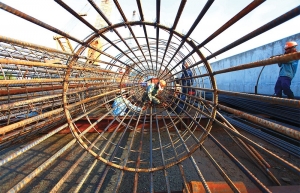 | Vietnam’s infrastructure luring Chinese investment With wider activities taking place involving the markets of China, Taiwan, and Hong Kong, their investors are looking at potential infrastructure opportunities throughout Vietnam. |
What the stars mean:
★ Poor ★ ★ Promising ★★★ Good ★★★★ Very good ★★★★★ Exceptional
Related Contents
Latest News
More News
- ESG seen as key to Vietnam’s business credibility and capital attraction (September 29, 2025 | 18:38)
- From compliance to strategy: ESG criteria gaining ground (September 29, 2025 | 15:47)
- Vietnamese firms step up ESG game (September 23, 2025 | 15:26)
- Vietnam tax and legal changes set to shape foreign investment landscape (September 16, 2025 | 13:46)
- Vietnamese businesses navigate US tariffs (June 25, 2025 | 12:14)
- The impact of cloud, AI, and data on financial services (April 14, 2025 | 11:20)
- Vietnam 2025 M&A outlook: trends, deals, and opportunities (March 21, 2025 | 08:54)
- Vietnam's M&A landscape mirrors global trends (February 18, 2025 | 17:13)
- Asia-Pacific CEOs enter 2025 with optimism and caution (February 06, 2025 | 17:16)
- Proposed changes to interest deductibility rules may be welcomed by taxpayers (January 22, 2025 | 09:23)

 Tag:
Tag:


















 Mobile Version
Mobile Version